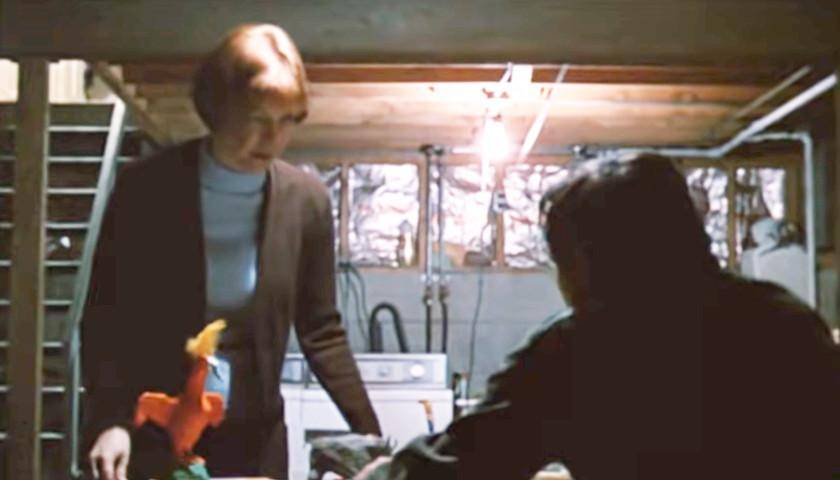by Ethan Connor
In his four-out-of-four review of William Friedkin’s The Exorcist, film critic Roger Ebert wrote that the picture “transcends the genre of terror, horror, and the supernatural.” However, Ebert did not address perhaps the most compelling element of the 1973 classic horror film: that buried deep within the gruesome story of a demon-inhabited 12-year-old girl is one of the most authentically theological films ever made.
The protagonist of The Exorcist is not, as one might expect, either the possessed Regan MacNeil or her mother, Chris (each of whom take up a majority of the screen time). After all, neither of them complete a character arc during the film.
Rather, the real protagonist is the tormented Catholic priest, Father Damien Karras. The Exorcist is his story, following his crisis of faith that makes him seriously consider resigning his priesthood and leaving the Catholic Church. The loss of his mother, as well as his own inner conflict, makes him lose his conviction in the grace and power of God.
This lack of faith manifests itself in Karras’ reluctance to perform the exorcism ritual on Regan. He dismisses Chris’ fear of the demonic as unwarranted, suggesting that the family pursue medical treatment instead.
Yet interestingly, it is not Karras’ eventual participation in the exorcism (in which he assists the elder Father Merrin) that restores his faith. Instead, Karras’ faith is restored after Merrin dies of a heart condition during the ritual. When this happens, Karras panics, rushing to Regan’s side and commanding the demon to possess him instead of her. When the demon does so, Karras hurls himself out Regan’s bedroom window, taking his own life to destroy the evil spirit. As Karras lies dying—the demon finally banished—a fellow priest kneels beside him to accept his confession. In Catholic terms, Father Karras dies in a “state of grace,” and he presumably enters the kingdom of heaven.
In sacrificing himself to save the life of an innocent child, Karras imitates Jesus Christ. He allows himself to be temporarily attacked by evil and willingly gives up his own life to save an innocent soul, much as Christ did according to the Gospels. Like his Lord, Karras also experiences a form of resurrection, having a few moments to confess the restoration of his faith and ensure that he will have eternal life.
The presence of such a profound Christian ethos in one of the most controversial, horrifying films of its time (particularly in contrast to the sickening evil of the demon) is testament to the authenticity with which Friedkin and screenwriter William Peter Blatty interpreted the concept of spiritual warfare. This authenticity is due in large part to the fact that both men deeply believed in the spiritual and supernatural. They both sincerely thought that it was more than possible for a demon to inhabit a child, and they believed that two men of God could expel that demon using the rituals of the Catholic Church.
For his part, Blatty was a staunch conservative Catholic, once even suing Georgetown University, his alma mater and Father Karras’ place of employment, for what he considered to be straying from its roots in traditional Catholic values. When he wrote the novel that he would later adapt into the screenplay of The Exorcist, Blatty actually intended to effect the conversion of souls to Catholicism and reinvigorate the faith of the wayward. He later took credit for a supposed rise in sacramental confessions in New York following the movie’s release. Succinctly, he stated his narrative purpose of The Exorcist as this: “God exists and the universe itself will have a happy ending.”
Friedkin, while never a practitioner of organized religion, stated unabashedly in an interview for “The Hollywood Masters,” “I believe in the teachings of Jesus as they’re set down in the New Testament.” He continued that he did not consider The Exorcist a “dark film” in the slightest; it was fundamentally a film about “the mystery of faith.”
The L.A. Times concluded of Friedkin: “If there’s a reason The Exorcist is not just one of the great horror films but one of the great religious films, it’s in how deeply he commits to the redemptive properties of faith and deliverance. The power of Christ compels him too.”
– – –
Ethan Connor is a contributor to Intellectual Takeout.
Photo “The Exorcist Trailer” by ryy79.




